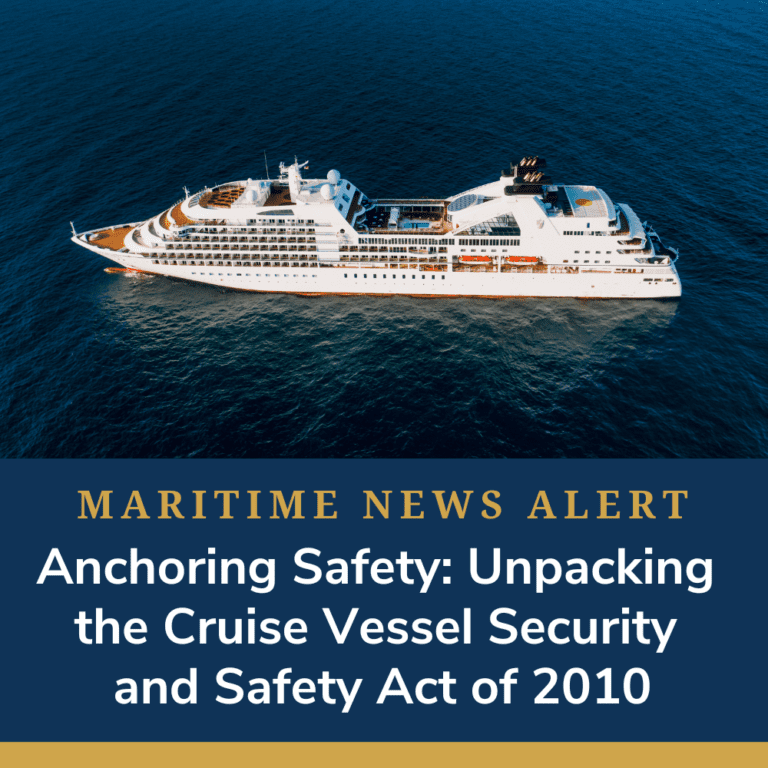
Vacations, particularly cruises, are great opportunities for relaxation. Yet, lurking behind the allure of these voyages lies an often unacknowledged danger. According to a study published in the International Journal of Travel Medicine and Global Health in November 2020, researchers uncovered alarming statistics: between 2000 and 2019, there were 557 passenger deaths and 66 crew deaths reported across 78 registered ocean and river cruise lines worldwide. In response to these concerns, the United States government took action in 2010 by enacting legislation aimed at increasing passenger safety aboard cruise vessels.
Definition of Cruise Vessel Security and Safety Act of 2010
According to the United States Coast Guard, the Cruise Vessel Security and Safety Act is defined as “security and safety requirements for any passenger vessel that is authorized to carry and has onboard sleeping facilities for at least 250 passengers, that is not engaged in a coastwise voyage, and that embarks or disembarks passengers in the United States.”
Essentially, this federal law outlines the new safety requirements for passenger cruise vessels traveling to and from American ports.
New Safety Requirements For:
- Vessel design
- Public access to information about crime aboard cruise ships
- Provisions for emergency medical treatment
- Crime prevention and criminal evidence gathering
Training Programs
Under this legislation, a collaborative effort between the Federal Bureau of Investigation (FBI), the U.S. Coast Guard (USCG), and the Maritime Administration (MARAD) resulted in the creation of training standards. These standards encompass various aspects of crime prevention, detection, evidence preservation, and the proper reporting of criminal activities at sea.
One of the key aspects of the Act grants MARAD the authority to certify security and safety training providers who adhere to these model standards. This voluntary certification will help organizations and crew members maximize the safety and security of their passengers.
At Injury at Sea, we champion maritime safety and advocate for injured passengers. If you encounter an accident or sustain an injury while on a cruise vessel, our experienced legal team stands by your side. We understand the complexities of maritime law and are dedicated to securing fair compensation for passengers injured on cruise vessels.
Call one of our qualified maritime injury attorneys at 1-800-732-7258 or email us at jim@injuryatsea.com to schedule your free consultation with an experienced maritime injury lawyer.